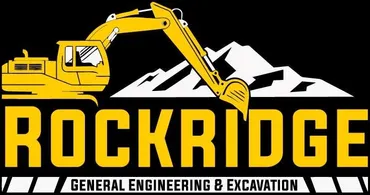YOUR #1 FULL SITE PREP EXPERTS!
CALL NOW- 360-564-5933
Licensed: ROCKRGE816DF - Over 35 Years of Experience | Emergency Services Available | Family and Locally Owned

Mastering Full Site Preparation: Key Steps for Strong Foundations
A Complete Approach to Full Site Preparation for Lasting Results
Building something that stands the test of time begins long before the first brick is laid. Full site preparation is the foundational step that shapes the destiny of any construction project. Whether you're developing a residential oasis or a sprawling commercial complex, a well-prepared site is the hidden force that ensures stability, safety, and efficiency.
Let’s dive into what makes full site preparation such a critical phase of construction, unravel the intricate steps involved, and answer common questions that arise along the way.
Defining Full Site Preparation
Full site preparation is a methodical process that transforms raw land into a canvas ready for construction. It’s not just about clearing away debris—it’s about sculpting the land into a reliable surface where your project can flourish. This preparation involves:
Land Clearing: Stripping away trees, brush, rocks, and unwanted elements.
Grading: Smoothing and reshaping the landscape to direct water flow and stabilize the surface.
Excavation: Digging the earth for building foundations, utility lines, and drainage systems.
Soil Testing: Gauging the strength and quality of the soil to ensure it can support the structure.
Compaction: Pressing the earth to create a dense, solid base that resists shifting or settling.
Each stage ensures that when construction begins, the ground beneath it is well-equipped to handle the weight and withstand the elements.
The Importance of Full Site Preparation
Why is full site preparation such a vital step? Imagine constructing a building on unstable ground—cracks could form, walls could shift, and disaster could follow. Proper preparation sets the stage for long-lasting success, and here’s why:
Stable Foundations: Without a properly graded and compacted surface, your building could be prone to shifting, causing cracks and other structural issues.
Water Management: Effective grading ensures that water flows away from your structure rather than pooling around it, which prevents erosion, flooding, and damage over time.
Long-term Savings: A well-prepped site prevents costly repairs by minimizing issues like foundation settling, water damage, or drainage problems.
Environmental Responsibility: Site preparation helps mitigate environmental damage by managing erosion, protecting natural water channels, and adhering to local ecological regulations.
The Steps of Full Site Preparation
Surveying the Landscape
The journey begins with a precise survey, where the land’s boundaries and contours are mapped. This step identifies any challenges that the terrain presents, whether it’s a slope that needs grading or areas where utility lines must be installed.Clearing the Canvas
Clearing the land is like wiping a slate clean. Trees, bushes, rocks, and any other natural obstacles are removed. The goal is to create a blank surface, free of any elements that could interfere with construction. Depending on the site’s size, this can involve anything from small tools to heavy-duty equipment like bulldozers and excavators.Shaping the Land with Grading and Excavation
Once the land is cleared, the real transformation begins. Grading reshapes the earth to create level surfaces for building while ensuring proper drainage. Excavation carves out spaces for foundations, basements, or utility systems, setting the groundwork for infrastructure.Testing and Compacting the Soil
The unseen hero of site preparation is soil testing. By analyzing the soil’s capacity to bear weight, contractors can ensure the land is fit to support the structure. After testing, the soil is compacted—squeezed into a dense, stable layer that resists movement. This step is crucial to prevent settling, which can lead to foundation cracks and instability.
Common Questions About Full Site Preparation
Q1: How long does site preparation take?
The time it takes to complete full site preparation varies depending on the size and complexity of the project. Smaller residential lots might only take a week, while larger commercial plots could require several weeks or more. Factors like weather, soil conditions, and unexpected obstacles can also influence the schedule.
Q2: What kind of permits are needed?
Permits are generally required for site preparation work, particularly for land clearing, excavation, and grading. The specific permits depend on local regulations, so it’s essential to consult with your contractor and local authorities to ensure all necessary approvals are in place before work begins.
Q3: How much does full site preparation cost?
Costs vary based on the size of the site, the complexity of the terrain, and the specific work required. Prices can range from a few thousand dollars for smaller projects to tens of thousands for large, commercial jobs. It’s important to budget for the entire process, including unexpected factors like difficult soil conditions or the need for additional grading.
Q4: Is full site preparation necessary for every project?
Yes, regardless of the scale of the project, some form of site preparation is always necessary. Even minor builds require basic grading and soil testing to ensure the land can support the structure. Skipping these steps may lead to costly repairs and issues in the future.
Q5: What happens if site preparation isn’t done properly?
Neglecting proper site preparation can lead to severe issues. Uneven grading can cause water to pool around the building, leading to erosion or water damage. Improper soil compaction can result in the structure settling unevenly, causing cracks and compromising the foundation’s integrity. These problems can be expensive to fix and could even require significant rebuilding.
Choosing a Site Preparation Contractor
Selecting the right contractor for full site preparation is crucial. Look for professionals with a proven track record, modern equipment, and an understanding of local environmental regulations. They should provide a detailed plan, outline the steps clearly, and ensure that the job is done efficiently and within budget.
The right contractor ensures not only that your project begins on solid ground but that it also adheres to environmental best practices and avoids future complications.
Final Thoughts
Full site preparation is the bedrock of any successful construction project. From clearing land to grading and soil compaction, every step is vital for ensuring the building's future stability. Skimping on site prep is a gamble—one that can lead to costly repairs or, worse, structural failure.
Whether you're planning a small residential build or a large commercial development near Lewis County, Washington, investing in professional site preparation will save you time, money, and headaches down the road.

AVOID COSTLY MISTAKES:
Do NOT hire an excavating contractor without first reading our free guide:
The ULTIMATE Excavation & Septic "Success Guide."

We Offer Excavation Services You!
If you don't see your specific area contact us and we may still be able to help or give a referral.
All rights reserved | Privacy policy | Client Support Area | Terms & Conditions | Privacy policy





